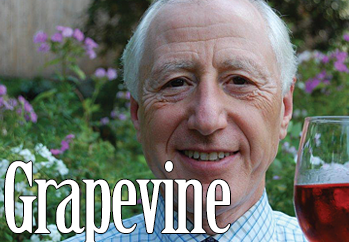So, You Didn’t Finish That Bottle of Wine at Dinner. Now What?
Opinion Advocates for ideas and draws conclusions based on the author/producer’s interpretation of facts and data.
 It’s the middle of the workweek and you’re stressed out, even more so than last week’s stressful situation of the day.
It’s the middle of the workweek and you’re stressed out, even more so than last week’s stressful situation of the day.
You’ve been texting with your significant other and agree you both need a mid-week attitude adjustment – take-out from your favorite Saturday night restaurant and tapping the bottle of wine you’ve been saving for a special occasion. What better occasion than impromptu time alone and decompressing from the day’s traumas?
The meal and the wine achieve the desired effect. The raw edges and elevated adrenalin of the day begin to dissipate. By the end of the meal, you replace the cork in the unfinished bottle of wine and settle in for the evening.
Replace the cork? Do you realize what you’ve just done? That cork is the death knell for the remaining nectar in that special bottle that just sent you on your way to a zen-like state of mind.
Oxygen in a bottle of wine is its worst enemy; oxidation of the wine commences upon contact with the air. You’re in a race against time to preserve that wine until the next wine occasion.
You’ve tried placing the unfinished bottle in the fridge to slow the oxidation process. Prolonged shelf-life: one to two days.
You’ve tried to outwit Mother Nature. You’ve immediately poured the anticipated unused contents into a smaller vessel, filling that vessel to the brim, sealing it and then consuming the wine in the original container. Prolonged shelf-life: four to six days.
You’ve tried wine gadgets based on scientific principles, guaranteeing victory in the struggle between humankind and nature. One gadget creates a vacuum; place it over the bottle opening, pump it a few times and the oxygen in the bottle is sucked out. Prolonged shelf-life: five to seven days.
Each of these solutions is suitable for wine preservation for short periods of time. But now, the marvels of science have devised the ultimate means for preserving wine. As with a number of other inventions, this one comes to us tangentially, from the high-tech medical devices industry.
Greg Lambrecht, a biomedical engineer – and avid wine collector – worked on a wine preservation system for 13 years. His theory: If you don’t open a bottle of wine, oxygen can’t infiltrate and spoil the wine. This is not exactly rocket science, but Mr. Lambrecht has taken this theorem to its ultimate practical solution.
His product is dubbed the Coravin Wine Preservation System. How does it function?
Secure the device around the neck of the bottle. Its thin, hollow, Teflon-coated needle pierces the foil and cork, until it reaches the wine. With the device still in place, a user tilts the bottle and pours two ounces at a time into a glass. An attached argon gas capsule replaces the dispensed wine, preventing oxygen from entering the bottle.
Once done, you simply pull the needle from the bottle; the cork naturally reseals itself. Prolonged shelf-life: weeks, months, years.
Problem solved. The cork has not been removed, no fresh oxygen has been introduced and no new oxygen can enter the bottle.
Sound too good to be true? Lambrecht has tested the device with the assistance of wineries, wine shops, restaurants – and self-experimentation. In one such experiment, he states: “I drank a bottle of 1961 Chateau La Mission Haut-Brion with about 14 people over the course of four years.” He claims the small portions of wine were of consistent quality with each pour.
Another quote: “I’ve blind-tasted numerous wines (preserved using Coravin) and fresh samples, with sommeliers, Masters of Wine and other experts. We could not detect any difference.”
The latest variation is the Coravin Pivot, designed for more substantial pours of everyday wines, not meant for the long-term preservation of the original Coravin. Prolonged shelf-life: up to four weeks.
I must say I’m a believer. Now I just have to put my money where my mouth is – or add it to my wish list. The retail price for the baseline Coravin is $249 and $119 for the Pivot. Each $8.75 argon capsule is good for about 15 full pours.
Nick Antonaccio is a 45-year Pleasantville resident. For over 25 years, he has conducted wine tastings and lectures. Nick is a member and program director of the Wine Media Guild of wine journalists. He also offers personalized wine tastings. Nick’s credo: continuous experimenting results in instinctive behavior. You can reach him at nantonaccio@theexaminernews.com.
